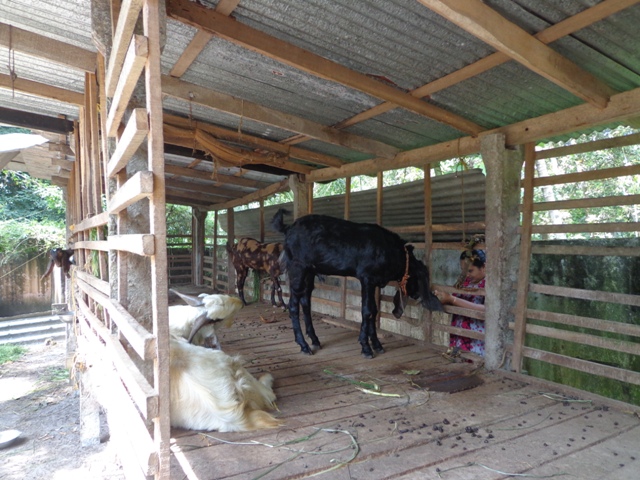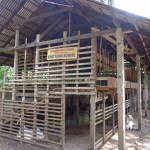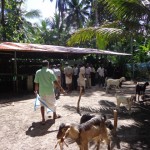Dairy, duck farming and Goatery are the major animal husbandry activities followed as livelihood options in Alappuzha district. Large number of small water bodies and a major area under wet land paddy farming in the district makes it a hub for duck farming. But the smaller land holding size and unavailability of land for fodder cultivation/grazing are challenges faced by the dairy farmers in the district. Overcoming this limitation, intensive system of goat farming has been realized and proved as a commercial venture. Many rural youths have taken up goat farming but those who followed scientific management practices have come out successful. One such example is Mr. M. Manoj, Mano Vihar, S L Puram PO, Cherthala who proved that, Goat farming is one of the most profitable livestock enterprise in the district.
The beginning: In the year 2006 he availed a bank loan of Rs. 25000 and started a small goat unit with one pair of local breeds and reared in traditional way up to 2013. He could make an additional income just sufficient for maintenance but could not depend solely on this.
KVK interventions: During 2014 Sri.Manoj and his wife Mrs. Rajani attended the training programme on “commercial goat farming” conducted by KVK – Alappuzha. Immediately after this, he constructed a goat shed scientifically with raised platform at expenditure of Rs.60000/- to accommodate 100 goats. For constructing the shed locally available coconut wood and tin sheets which were of low cost were used. An annual maintenance cost of Rs.6000/- is additionally incurred. He strengthened the unit with 10 Malabari goats and started the farming as intensive system of rearing. After the training programme he frequently contacted KVK- Alappuzha for technical guidance on an average of once in a week. The KVK expert visited his unit also occasionally and provided technical guidance.
Outcome: Now he owns 60 nos of adult goats of Malabari, Jamunapari and Shirohi breeds (20 male and 40 female) and the main income is through the sale of 3 month old kids. Every year 60 kids are produced and sold on live weight basis @ Rs.350/kg. He never sold adult animals. Many customers from Alappuzha and neighboring districts approach him for procuring Kids. Also a reasonable amount is earned through the use of bucks for breeding purpose for which Rs. 250 is collected for each service and an average of 5 services done per month. The excreta is collected, dried and kept for own fodder cultivation and selling for agricultural purpose. On an average ten kilogram of dried excreta is available per day which is sold @ Rs.15/kg. For ensuring green fodder availability throughout the year, fodder grass var.CO-3 is cultivated as intercrop in coconut garden in 70 cents of land. All his family members are involved and hence they manage this farming activity themselves. With a concentrate feed cost of Rs. 11500/ month, an approximate expenditure of Rs.1.95 lakhs is incurred annually (including cost share of the shed) giving a gross income of Rs.3.22 lakhs, with a net income of Rs.10,600 per month.
Horizontal Spread:
State Animal Husbandry department recognized his farm as one of the model farm in the district and bring the other farmers for exposure visit. So far 14 groups of farmers and 102 individual farmers visited his farm. Six farmers have started new units after visiting his unit.











